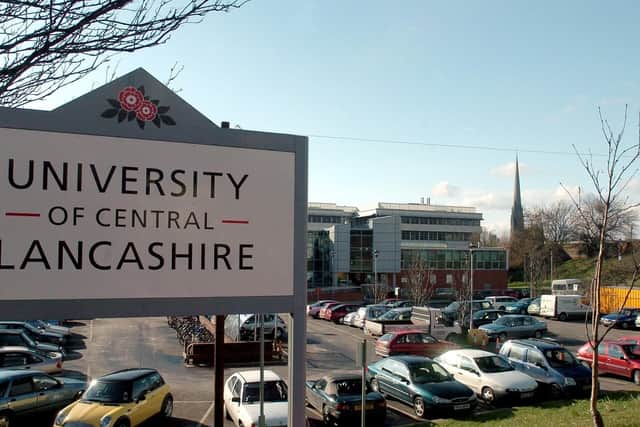UCLan renews pledge to the people of Preston with new civic agreement


The University of Central Lancashire has become the 50th to sign the new “Civic University Agreement.”
Along with higher education institutions across the country, committing to produce a “Civic University Agreement” in partnership with local government and other major institutions, the university has vowed to help support the places where they are based to solve some of their most pressing and major problems.
Advertisement
Hide AdAdvertisement
Hide AdThe new agreement is a key recommendation in a report published today by the Civic University Commission set up by the UPP Foundation and chaired by the former head of the Civil Service, Lord Kerslake.


The aim is to help universities like UCLan build on the work they are already doing working alongside councils, employers, cultural institutions, schools and colleges.
Liz Bromley, UCLan's joint institutional lead said the university indirectly contributed around £200 million to Preston and the North West economy every year.
She added: " For UCLan, civic engagement is not a ‘nice to have’; or an ‘add-on’: genuine and meaningful relationships with the communities around us are vital if we are to become the university we’ve said we want to be."
Advertisement
Hide AdAdvertisement
Hide AdThe Civic University Agreement, now signed by over 50 universities, includes four key points:
* Understanding local populations, and asking them what they want. Analysis of their place and people’s priorities are essential.
* Understanding themselves and what they are able to offer.
* Working with other local anchor institutions, businesses and community organisations to agree where the short, medium and long-term opportunities and problems lie for communities. Linking with local authorities and other local plans, such as the local industrial strategy is particularly important.
* A clear set of priorities. A process of agreeing clear priorities will therefore be necessary and, again, this is where collaboration and aligning resources with local authorities, LEPs (Local Economic Partnerships), NHS bodies and the like can help to identify the live issues that universities can most usefully help with.